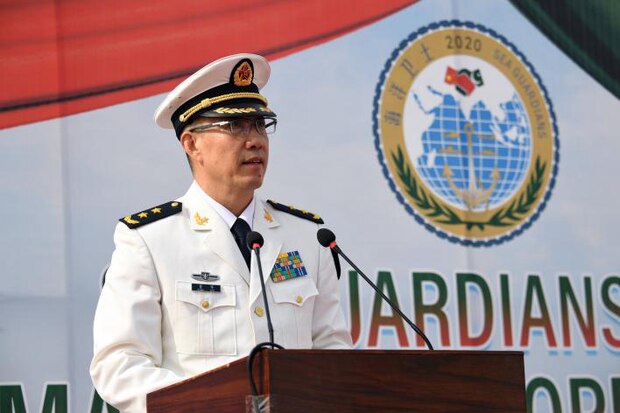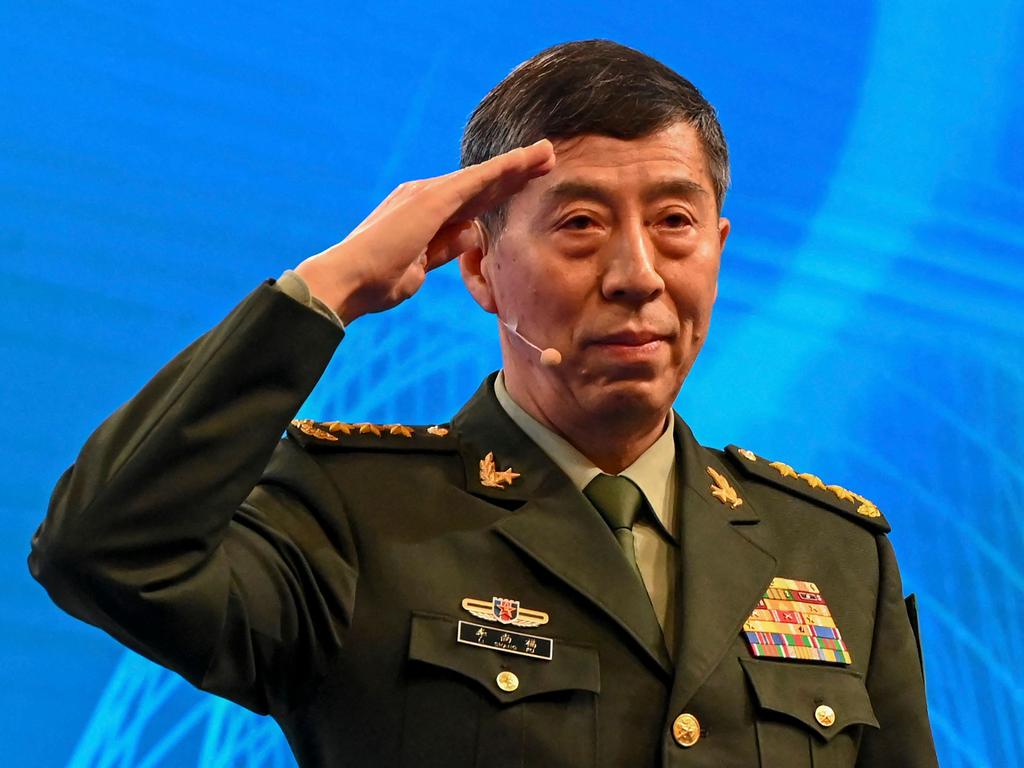China names new defence minister after unexplained removal
Admiral Dong Jun replaces General Li Shangfu, who was yanked after just seven months in the job.

China named a top navy admiral as its new defence minister, two months after Beijing abruptly removed the previous appointee without explanation.
Admiral Dong Jun, who most recently served as the top commander of China’s navy, was appointed head of the Defence Ministry through a presidential decree signed by Chinese leader Xi Jinping on Friday, after senior legislators agreed on the choice, the official Xinhua News Agency said.
As navy commander, Admiral Dong helped advance Mr Xi’s quest to build a modern ocean-going navy, capable of asserting China’s interests in its peripheral waters and well beyond. Dong is the fifth defence minister to serve under Mr Xi since the Chinese leader took power in late 2012, and the first career naval officer to rise to this role.
His appointment comes just days after Washington and Beijing’s top military brass held their first formal talks in 16 months.
John Supple, a Pentagon spokesman, acknowledged reports of Admiral Dong’s appointment, adding that the US has been engaged in working-level communication with China about a sequence of upcoming engagements so that the two countries’ senior-most defence and military leaders can have “substantive conversations”.
China’s defence minister largely handles military diplomacy and doesn’t hold command responsibilities over combat operations. The position had been vacant since late October when Beijing removed General Li Shangfu just seven months after he took the job, the second time in three months that Mr Xi had dropped a minister he had picked for his third-term government.
General Li was China’s shortest-serving defence minister since the communist victory in 1949. His removal, which followed a two-month absence from public view, echoed the fate of Qin Gang, China’s previous foreign minister, who was replaced in July after disappearing a month earlier.
The sudden and unexplained changes in two prominent ministerial posts have fuelled speculation about General Li and Mr Qin’s fate, and prompted Western officials to raise concerns about China’s increasingly opaque governance under Mr Xi.
Authorities took General Li away for questioning in September, The Wall Street Journal previously reported. A purge would make General Li the third incumbent member of the Central Military Commission — which commands the armed forces — to be removed by Mr Xi. In 2017, the party opened graft probes against two senior generals that prompted one to commit suicide and consigned the other to life imprisonment.
Beijing removed General Li as a member of the state military commission in October, though the Defence Ministry’s website has continued to list him as a member of the party’s military commission.
Under Mr Xi, the People’s Liberation Army’s navy has swelled in size and combat capabilities geared toward asserting Beijing’s maritime interests in the face of US naval power.
In recent years, the navy played a prominent role in shows of force aimed at flexing China’s resolve in defending sovereignty claims over the South China Sea and Taiwan, the island democracy that Beijing regards as its territory. For instance, Chinese warships conducted drills around Taiwan in response to then-US House of Representatives speaker Nancy Pelosi’s Taipei visit last year, as well as Taiwan President Tsai Ing-wen’s trip to the US in April.
Naval forces have also fronted China’s efforts to counter US military activities that Beijing deems aggressive. In September, an unusually large group of Chinese warships gathered in the Western Pacific after the US and its allies held an expansive military drill.
Admiral Dong, the new defence minister, had a front-row seat to these developments. In the past decade, he held senior roles overseeing military forces with responsibilities over the South China Sea and Taiwan, before becoming the navy’s top commander in 2021.
While all of China’s armed services will play a critical role in light of future conflict, particularly over Taiwan, the nature of the defence-minister post means Admiral Dong’s experience isn’t what qualifies him, said Drew Thompson, a visiting senior research fellow at the Lee Kuan Yew School of Public Policy in Singapore.
In China, the defence minister is “a role that primarily engages foreigners, but makes no decisions, controls no budget and commands no forces,” Thompson said.
As an interlocutor, Admiral Dong could build on his previous experience interacting with China’s allies, especially Russia, said Lin Ying-yu, an expert on the Chinese military at Tamkang University in Taiwan. Over the years, Dong helped direct several naval exercises China and Russia jointly held.
“A top priority for the PLA is to absorb the lessons Russia learns in Ukraine, and then improve its own capabilities in future conflicts,” said Lin. “This could be one of Dong’s primary tasks.”
General Li’s removal as defence minister, along with other unusual personnel changes in senior military and defence circles in 2023, has fuelled speculation of a high-level anti-graft sweep targeting China’s defence establishment.
China named a new commander for its strategic-missile force in late July, ousting the incumbent after an unusually short stint in a key role. In September, the president of the PLA’s military court was removed from his post just eight months after he started the job.
Last week, Beijing removed a dozen senior military and defence-industry officials from their respective roles in China’s national legislature and a government advisory body, an unusual move that stirred speculation that these men may be facing disciplinary probes.
Among them, nine high-ranking PLA officers were ejected from the legislature, including former commanders of China’s strategic-missile force and air force, as well as generals who had responsibilities in arms procurement — an area that General Li, the former defence minister, once oversaw as head of the Central Military Commission’s Equipment Development Department. Three top defence-industry executives were separately ousted from the government advisory body.
Since taking power in late 2012, Mr Xi has used corruption probes to assert control over the politically influential PLA and push through a far-reaching modernisation program. The purge cleared the way for Mr Xi to promote officers considered by military-affairs specialists to be more professional and politically reliable.
Rachel Liang in Singapore and Nancy A. Youssef in Washington contributed to this article
The Wall Street Journal




To join the conversation, please log in. Don't have an account? Register
Join the conversation, you are commenting as Logout